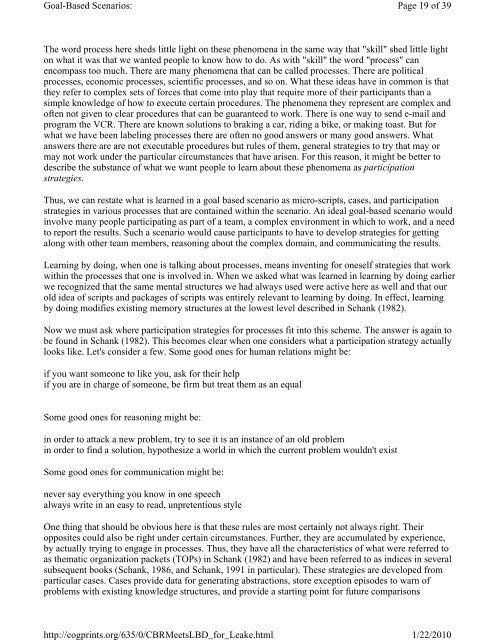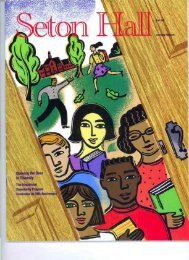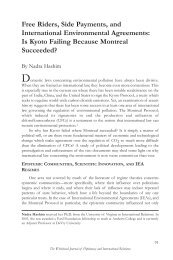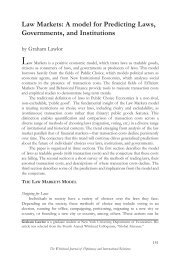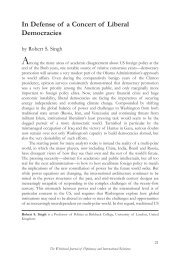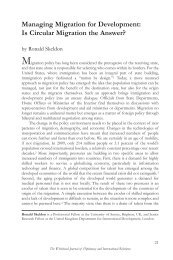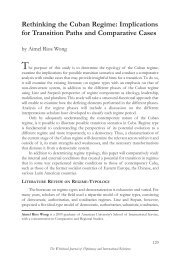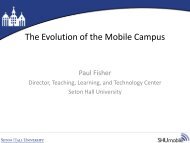Case-Based Reasoning Meets Learning by Doing
Case-Based Reasoning Meets Learning by Doing
Case-Based Reasoning Meets Learning by Doing
Create successful ePaper yourself
Turn your PDF publications into a flip-book with our unique Google optimized e-Paper software.
Goal-<strong>Based</strong> Scenarios:<br />
The word process here sheds little light on these phenomena in the same way that "skill" shed little light<br />
on what it was that we wanted people to know how to do. As with "skill" the word "process" can<br />
encompass too much. There are many phenomena that can be called processes. There are political<br />
processes, economic processes, scientific processes, and so on. What these ideas have in common is that<br />
they refer to complex sets of forces that come into play that require more of their participants than a<br />
simple knowledge of how to execute certain procedures. The phenomena they represent are complex and<br />
often not given to clear procedures that can be guaranteed to work. There is one way to send e-mail and<br />
program the VCR. There are known solutions to braking a car, riding a bike, or making toast. But for<br />
what we have been labeling processes there are often no good answers or many good answers. What<br />
answers there are are not executable procedures but rules of them, general strategies to try that may or<br />
may not work under the particular circumstances that have arisen. For this reason, it might be better to<br />
describe the substance of what we want people to learn about these phenomena as participation<br />
strategies.<br />
Thus, we can restate what is learned in a goal based scenario as micro-scripts, cases, and participation<br />
strategies in various processes that are contained within the scenario. An ideal goal-based scenario would<br />
involve many people participating as part of a team, a complex environment in which to work, and a need<br />
to report the results. Such a scenario would cause participants to have to develop strategies for getting<br />
along with other team members, reasoning about the complex domain, and communicating the results.<br />
<strong>Learning</strong> <strong>by</strong> doing, when one is talking about processes, means inventing for oneself strategies that work<br />
within the processes that one is involved in. When we asked what was learned in learning <strong>by</strong> doing earlier<br />
we recognized that the same mental structures we had always used were active here as well and that our<br />
old idea of scripts and packages of scripts was entirely relevant to learning <strong>by</strong> doing. In effect, learning<br />
<strong>by</strong> doing modifies existing memory structures at the lowest level described in Schank (1982).<br />
Now we must ask where participation strategies for processes fit into this scheme. The answer is again to<br />
be found in Schank (1982). This becomes clear when one considers what a participation strategy actually<br />
looks like. Let's consider a few. Some good ones for human relations might be:<br />
if you want someone to like you, ask for their help<br />
if you are in charge of someone, be firm but treat them as an equal<br />
Some good ones for reasoning might be:<br />
in order to attack a new problem, try to see it is an instance of an old problem<br />
in order to find a solution, hypothesize a world in which the current problem wouldn't exist<br />
Some good ones for communication might be:<br />
never say everything you know in one speech<br />
always write in an easy to read, unpretentious style<br />
Page 19 of 39<br />
One thing that should be obvious here is that these rules are most certainly not always right. Their<br />
opposites could also be right under certain circumstances. Further, they are accumulated <strong>by</strong> experience,<br />
<strong>by</strong> actually trying to engage in processes. Thus, they have all the characteristics of what were referred to<br />
as thematic organization packets (TOPs) in Schank (1982) and have been referred to as indices in several<br />
subsequent books (Schank, 1986, and Schank, 1991 in particular). These strategies are developed from<br />
particular cases. <strong>Case</strong>s provide data for generating abstractions, store exception episodes to warn of<br />
problems with existing knowledge structures, and provide a starting point for future comparisons<br />
http://cogprints.org/635/0/CBR<strong>Meets</strong>LBD_for_Leake.html<br />
1/22/2010


